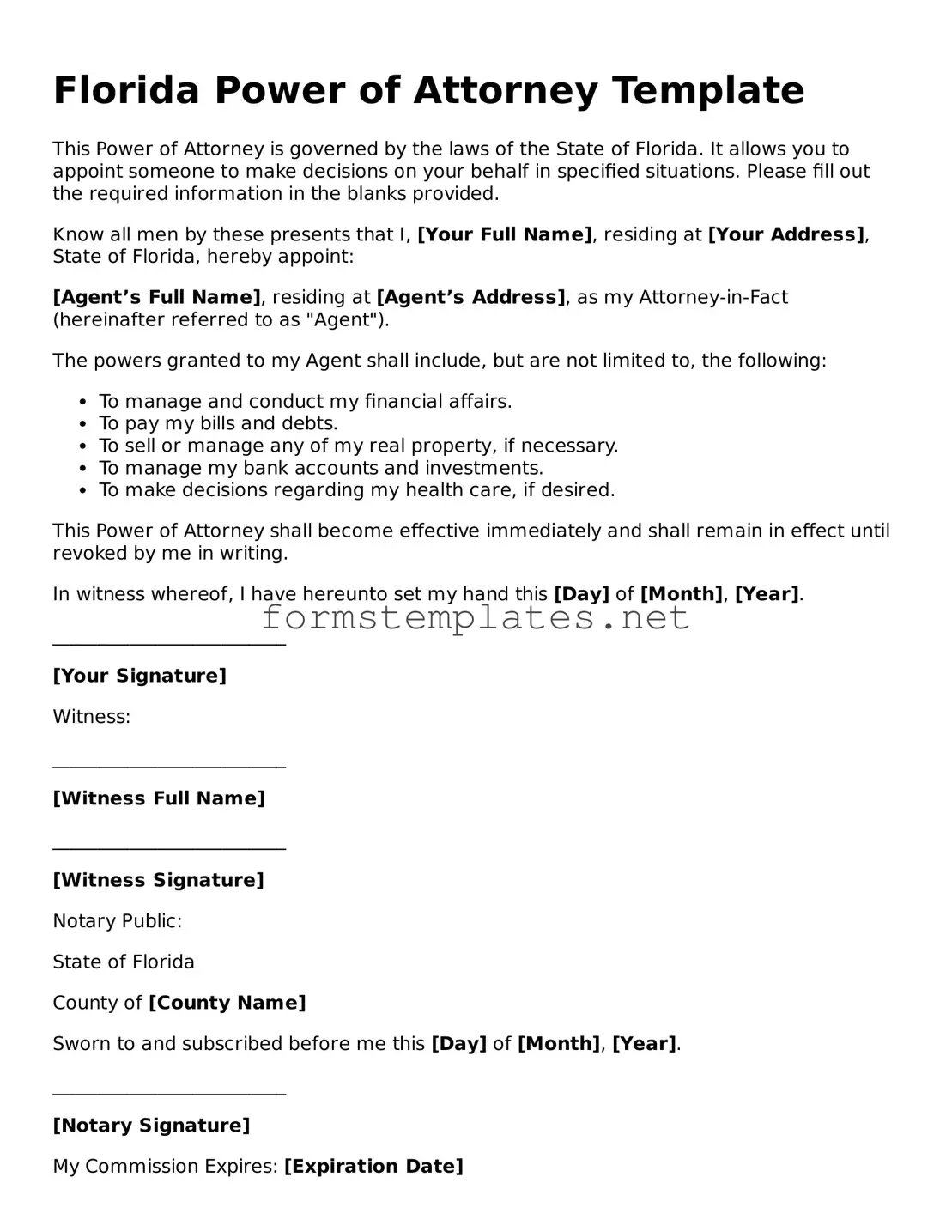Attorney-Approved Florida Power of Attorney Template
A Power of Attorney form in Florida is a legal document that allows one person to grant another person the authority to act on their behalf in financial, legal, or medical matters. This powerful tool can help ensure that your wishes are respected when you are unable to make decisions for yourself. Understanding how to properly create and use this form is essential for effective planning and peace of mind.
Open Editor Now

Attorney-Approved Florida Power of Attorney Template
Open Editor Now

Open Editor Now
or
⇓ PDF Form
Your form still needs attention
Finalize Power of Attorney online — simple edits, saving, and download.